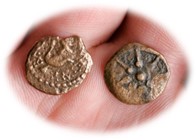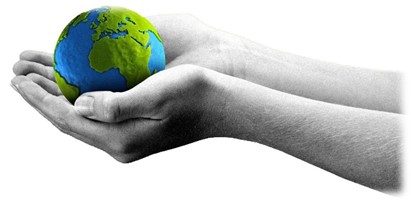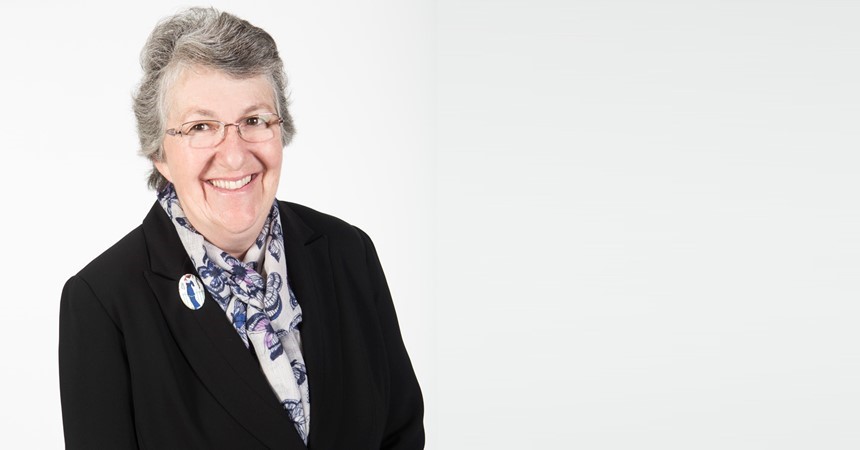That was the focus of our readings for the Thirty-second Sunday in Ordinary Time. I love the reading from the first book of Kings (17:10-16), where the Prophet Elijah arrives at the city gates of Sidon and meets a widow who is gathering sticks to bake the last meal for her and her son. Elijah asks for water and bread and so the woman shares the little she has with Elijah. This foretells the Gospel story from Mark (12:38-44) in which the poor widow gives all she possesses.
 Chapter 12 of Mark’s gospel has Jesus almost at the end of the journey to Jerusalem, and he is definitely being challenged by, and is challenging, the scribes and the pharisees. There is hypocrisy in the followers of the Law, and Jesus sniffs this out, much to their chagrin. This feels a bit like the challenges facing the Plenary Council and possibly the Bishop’s Synod on Synodality. What voices are we listening to, and who are we meant to be serving? What is core to God’s mission and who is called to serve?
Chapter 12 of Mark’s gospel has Jesus almost at the end of the journey to Jerusalem, and he is definitely being challenged by, and is challenging, the scribes and the pharisees. There is hypocrisy in the followers of the Law, and Jesus sniffs this out, much to their chagrin. This feels a bit like the challenges facing the Plenary Council and possibly the Bishop’s Synod on Synodality. What voices are we listening to, and who are we meant to be serving? What is core to God’s mission and who is called to serve?
Jesus spoke his truth, as revealed to him from God the Father. I wonder who is speaking our truth, and how do we judge what we hear and feel?
Last week I shared with you some words of Pope Francis, about hope as the future, from a 2017 TED talk titled, Why the only future worth building includes everyone.
Of course, it is worth listening to as the Pope calls for equality, solidarity and tenderness. This week, I have chosen to share with you the part of this talk about the revolution of tenderness.
The third message I would like to share today is, indeed, about revolution: the revolution of tenderness. And what is tenderness? It is the love that comes close and becomes real. It is a movement that starts from our heart and reaches the eyes, the ears and the hands. Tenderness means to use our eyes to see the other, our ears to hear the other, to listen to the children, the poor, those who are afraid of the future. To listen also to the silent cry of our common home, of our sick and polluted earth. Tenderness means to use our hands and our heart to comfort the other, to take care of those in need.
Tenderness is the language of the young children, of those who need the other. A child’s love for mum and dad grows through their touch, their gaze, their voice, their tenderness. I like when I hear parents talk to their babies, adapting to the little child, sharing the same level of communication. This is tenderness: being on the same level as the other. God himself descended into Jesus to be on our level. This is the same path the Good Samaritan took. This is the path that Jesus himself took. He lowered himself, he lived his entire human existence practising the real, concrete language of love.
Yes, tenderness is the path of choice for the strongest, most courageous men and women. Tenderness is not weakness; it is fortitude. It is the path of solidarity, the path of humility. Please, allow me to say it loud and clear: the more powerful you are, the more your actions will have an impact on people, the more responsible you are to act humbly. If you don’t, your power will ruin you, and you will ruin the other. There is a saying in Argentina: "Power is like drinking gin on an empty stomach." You feel dizzy, you get drunk, you lose your balance, and you will end up hurting yourself and those around you, if you don’t connect your power with humility and tenderness. Through humility and concrete love, on the other hand, power – the highest, the strongest one – becomes a service, a force for good.

The future of humankind isn't exclusively in the hands of politicians, of great leaders, of big companies. Yes, they do hold an enormous responsibility. But the future is, most of all, in the hands of those people who recognize the other as a "you" and themselves as part of an "us." We all need each other. And so, please, think of me as well with tenderness, so that I can fulfill the task I have been given for the good of the other, of each and every one, of all of you, of all of us. Thank you.
I hope you love this message as much as I do and that you can see the connection between this and our Sunday readings. We can no longer survive with a ‘survival of the fittest’ mentality. The only way our world, our planet, us humans will flourish is by simply being tender or as Pope Francis says, we need a ‘revolution of tenderness’. We need to see beyond ourselves for our own well-being as well as that of the other.
I am just about to finish teaching two units as part of the Christian Formation Course. There are fourteen in the group and every week I facilitate the group’s learning and sharing. Each week, I am in awe of the Spirit at work in the content delivered, in the sharing and in their written responses. Those who have participated will never be the same; they have encountered the depth of faith revealed to us in Jesus Christ and then lived out over two millennia in our church. They are forever changed because of their openness to the Mystery, and the commitment to walk with others in faith, hope and love.
I hope in these Dio Updates, that are distributed each week, you explore opportunities to grow in your own faith, but also the invitation to journey with others in their faith. And yes, this takes time and commitment. It may not be the wealth of finances that you are being called to put in the treasury of life, it may be your time, a time for building relationships, for connection, for sharing.
Please consider what revolution you are being called to!!!

